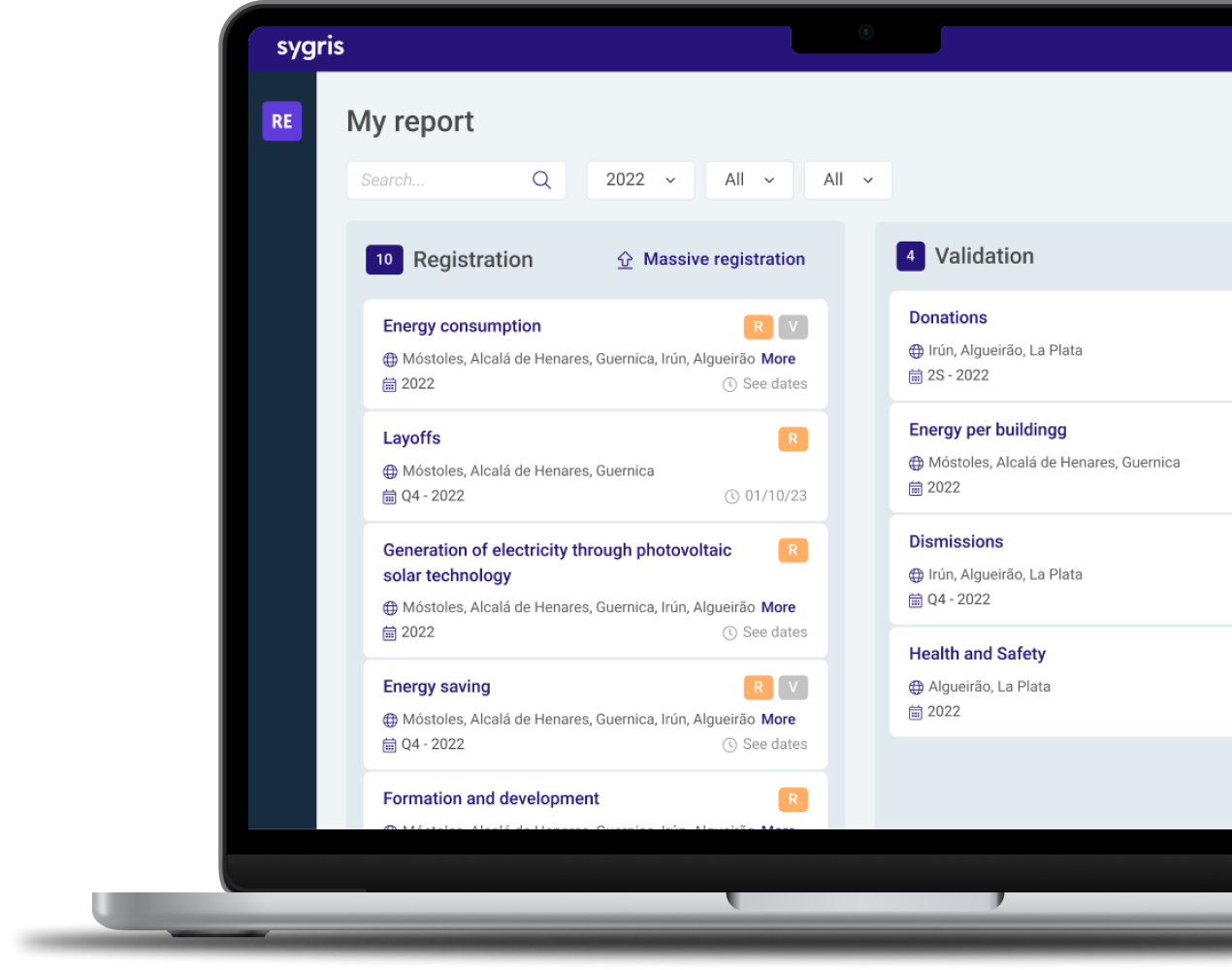Donald Trump’s recent policy decisions as U.S. President have sent ripples through the global economic and environmental landscape. From imposing hefty tariffs on key trading partners to rolling back plastic reduction measures, these changes directly affect businesses subject to the Corporate Sustainability Reporting Directive (CSRD), as well as ESG consultants, auditors, and sustainability and finance professionals.
New tariffs: a challenge for sustainable business
Since returning to the presidency in January 2025, Donald Trump has revived his protectionist trade policies, reintroducing tariffs that have sparked an immediate global reaction. In early February, the US administration announced a 25% tariff on imports from Canada and Mexico, alongside a 10% tariff on Chinese goods, arguing that these measures were necessary to safeguard American industry. The response was swift: China filed a formal complaint with the World Trade Organisation and introduced countermeasures targeting key US exports.
Meanwhile, Canada hit back with 25% tariffs on $30 billion worth of American products, and Mexico signalled that it might follow suit. These developments have reignited trade tensions between Washington and its North American and Asian partners, injecting fresh uncertainty into global markets.
In Europe, news of the tariffs has rung alarm bells in Brussels and across the continent’s major economies. Trump has already warned that further tariffs on European car imports will be announced in April, a move that could have serious consequences for German, French, and Italian manufacturers, whose industries are heavily reliant on the US market. The European Union has voiced strong concerns, making it clear that it will retaliate if Washington presses ahead with measures that threaten European businesses. Within the European Parliament and across corporate circles, fears are growing that a trade war with the US could escalate, impacting key sectors such as machinery, steel, and technology. With the deadline for potential tariffs fast approaching, transatlantic trade is heading into one of its most uncertain periods in recent memory.
For businesses subject to CSRD, such policies create additional hurdles in maintaining sustainable practices. Supply chain instability may make it harder to source responsibly produced materials and meet environmental standards. Rising costs could also limit investment in sustainability initiatives, forcing companies to rethink their ESG strategies.
The return of plastic: a step back in environmental progress
On the environmental front, Trump has signed an executive order banning biodegradable paper straws in federal buildings, reinstating plastic ones. His administration argues that paper straws are ineffective and costly, but environmentalists and sustainability advocates see this as a major step backwards.
This reversal in single-use plastic reduction policies could have significant consequences for businesses committed to sustainability. By actively promoting plastic, which is petroleum-based, Trump’s administration is undermining global efforts to tackle pollution and cut carbon emissions.
For companies that have already invested in cutting plastic waste and embracing circular economy principles, this shift in U.S. policy could bring several challenges:
- Stronger pressure from stakeholders: Investors and consumers focused on sustainability will demand more transparency on how companies manage plastic waste.
- Potential regulatory changes on a global scale: Businesses with operations in the U.S. may need to adjust their plastic reduction strategies to align with more lenient policies.
- Negative ESG reporting impacts: A resurgence of single-use plastics could affect sustainability reports, potentially harming ESG ratings.
What this means for sustainable investment
Since late 2024, the renewable energy sector has been one of the biggest casualties of Trump’s policies. The removal of tax incentives for electric vehicles (EVs) and a weakened commitment to the Paris Agreement have led to a 16% drop in the S&P Global Clean Energy Index, denting investor confidence.
This shift in the U.S. could have knock-on effects in Europe, especially for businesses that rely on sustainable investments to comply with CSRD requirements:
- More difficulty securing green financing: ESG funds may become more selective, making it harder for businesses to fund their green transition.
- Increased scrutiny of ESG reporting: Investors will demand more robust ESG data to justify their investments in an increasingly uncertain market.
- A greater need to demonstrate tangible ESG impact: Companies will face mounting pressure to prove real, measurable progress on sustainability goals.
How should businesses prepare?
Faced with these uncertainties, businesses need to be proactive in minimising the impact of Trump’s policies on their ESG performance. Key steps include:
- Strengthening supply chain resilience: Diversify suppliers and explore sustainable sourcing options that are less exposed to trade risks.
- Updating sustainability reports: Adjust ESG indicators to reflect new regulatory landscapes and global market trends using advanced reporting tools like Sygris.
- Exploring alternative funding options: Look beyond U.S. markets and tap into European sustainability investment schemes.
- Enhancing ESG communication: Demonstrate a strong commitment to sustainability with transparent reporting and active engagement with stakeholders.
- Keeping up with regulatory changes: Stay ahead of shifting legislation and adapt strategies in real time.
Your trusted ESG partner in uncertain times
Political and economic shifts in the U.S. are making ESG compliance and corporate sustainability strategies more complex than ever. In this evolving landscape, businesses need reliable tools to stay compliant, make data-driven decisions, and future-proof their ESG commitments. Companies can:
- Manage and report ESG data in real time.
- Stay agile in response to global regulatory changes.
- Optimise sustainable investment strategies.
- Ensure transparency and traceability in ESG reporting.
Now, more than ever, staying ahead in ESG means being adaptable, strategic, and well-informed. Sygris is here to help you navigate these challenges with confidence.





